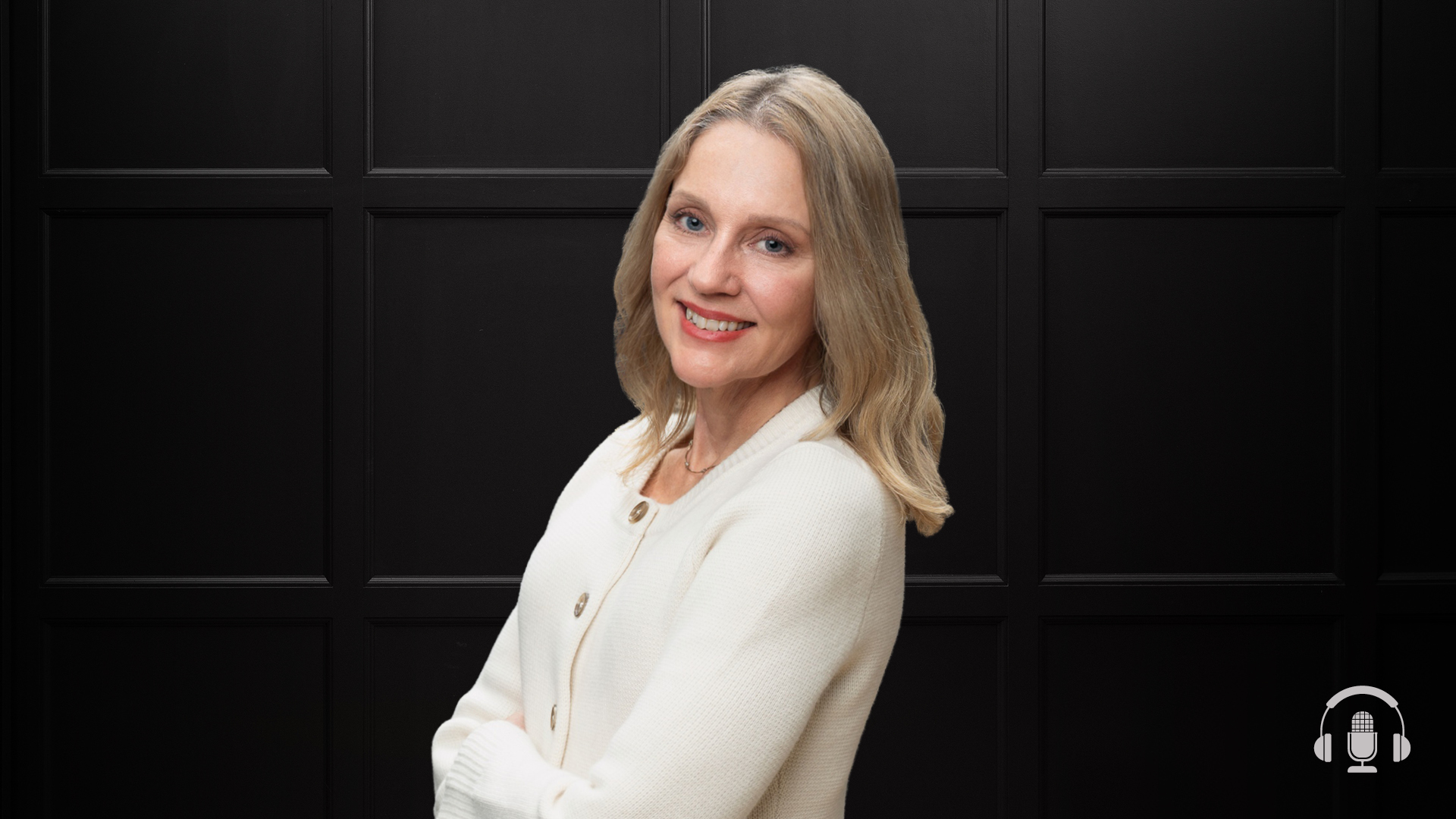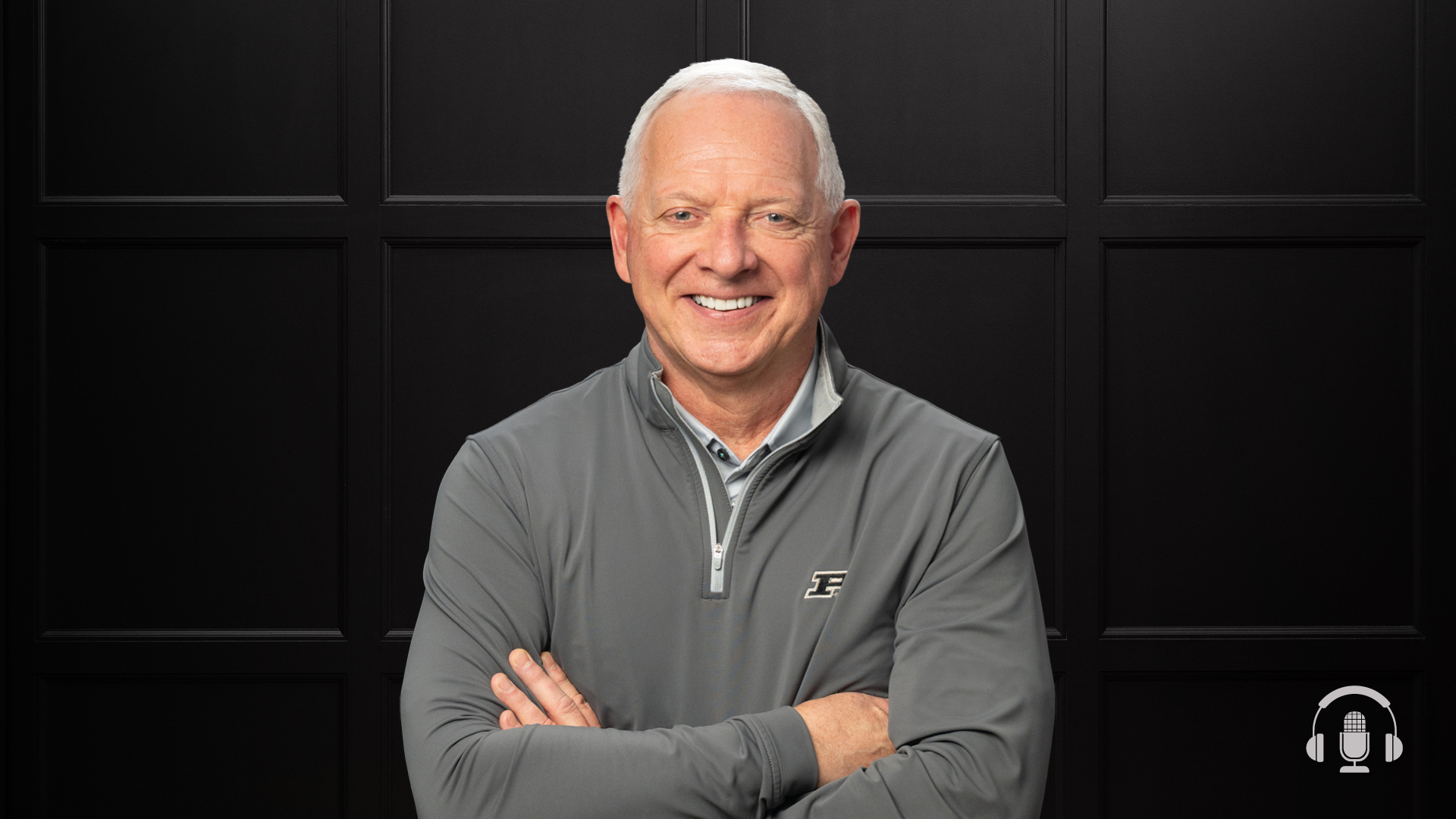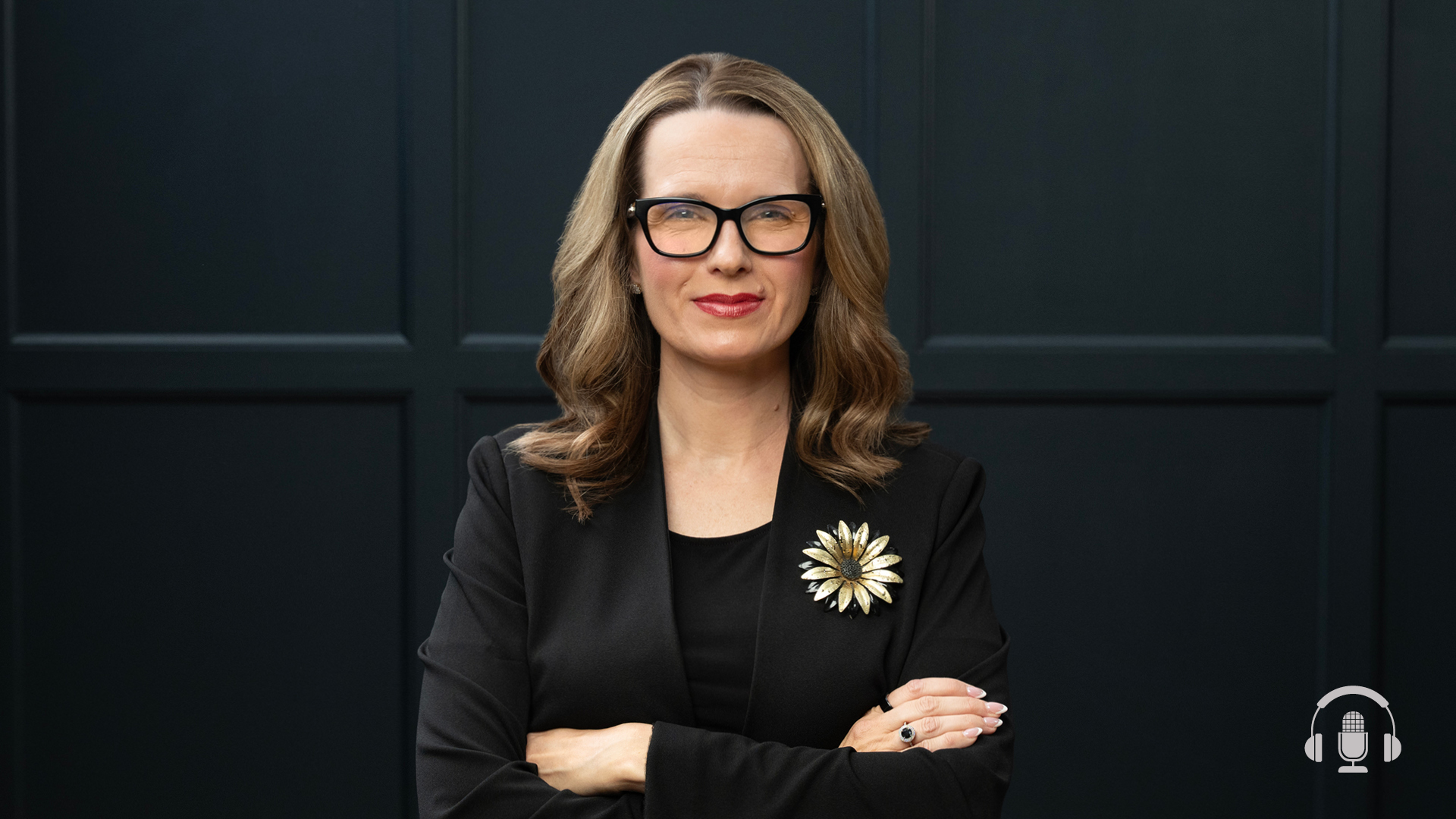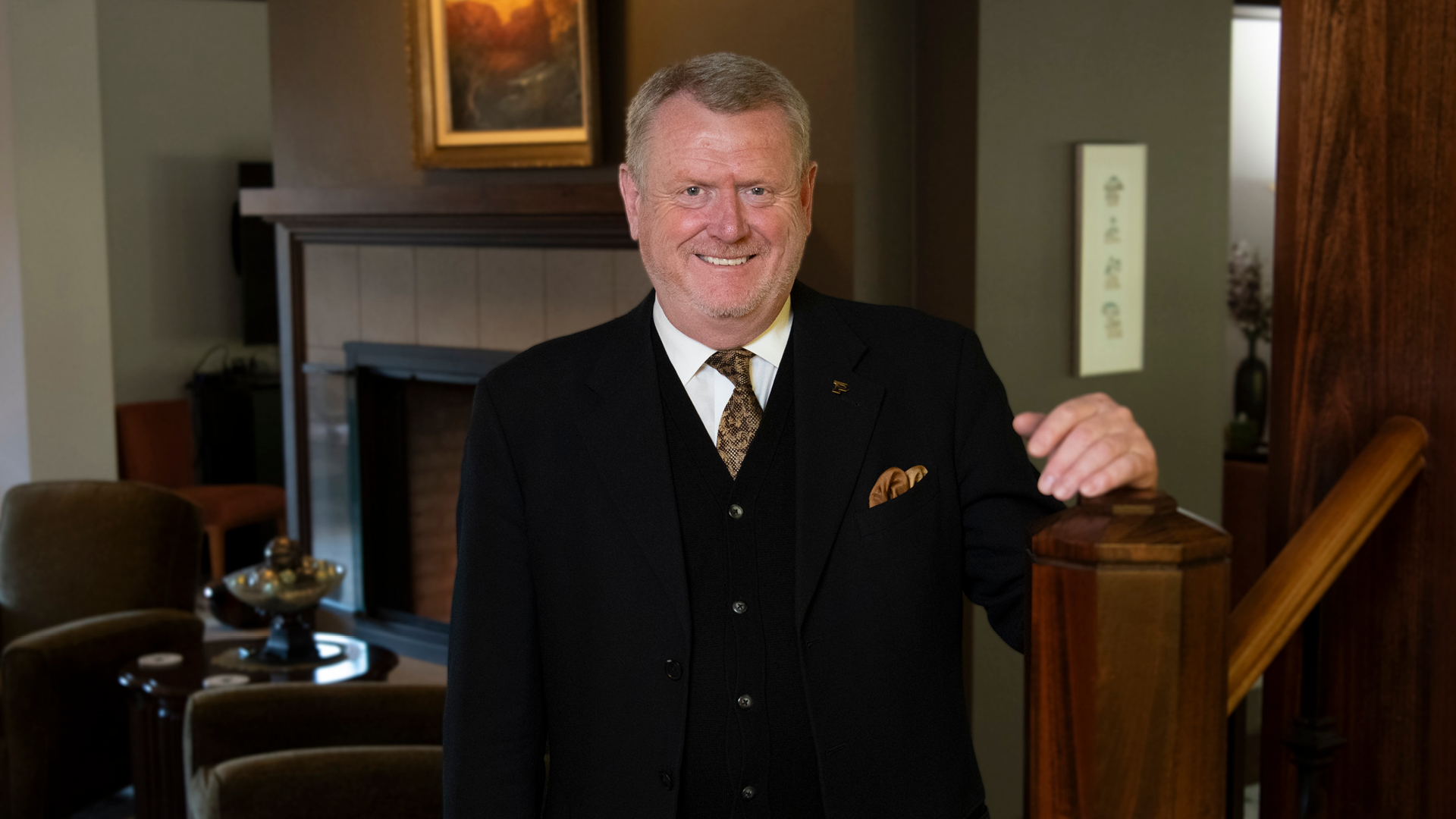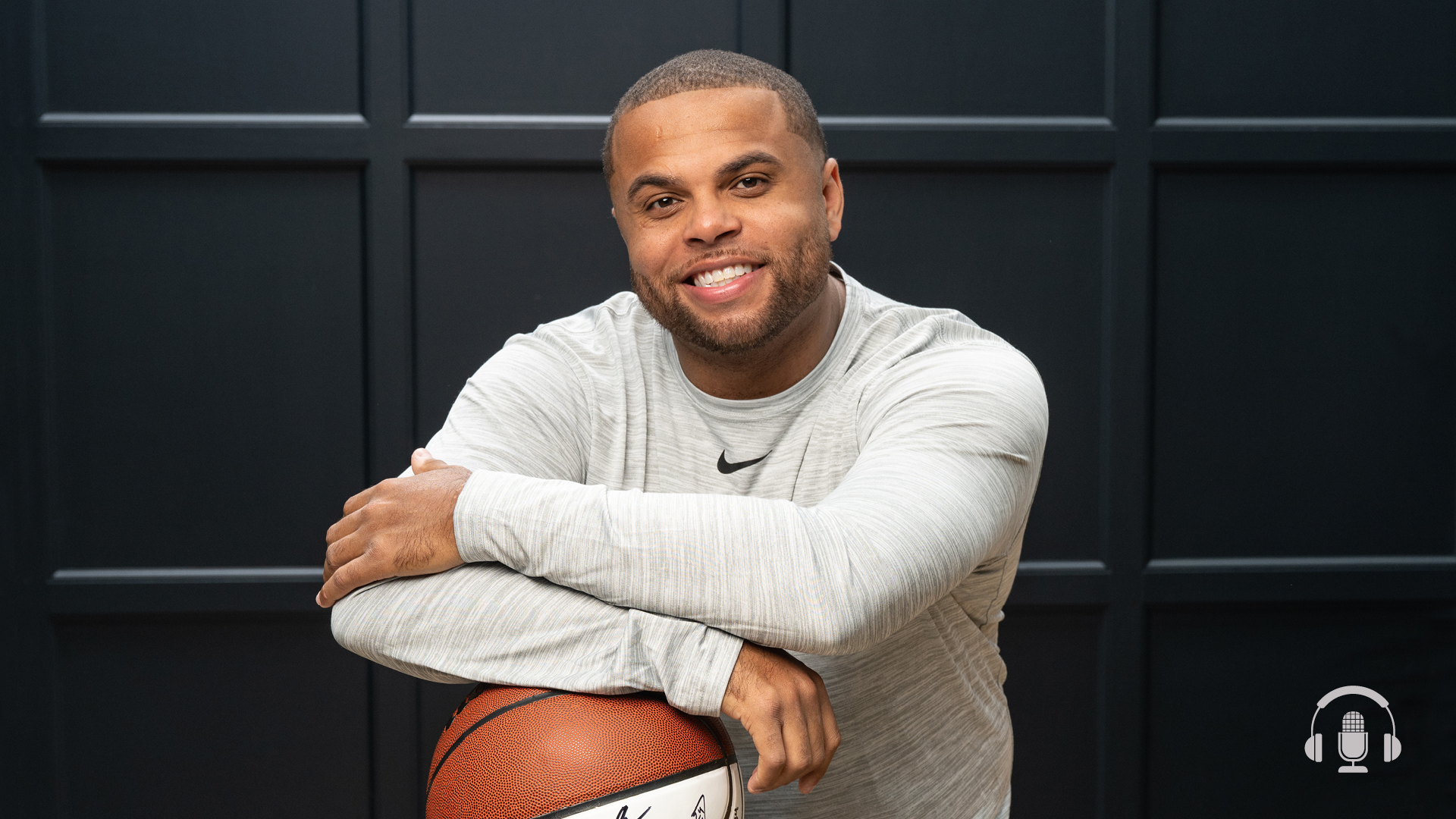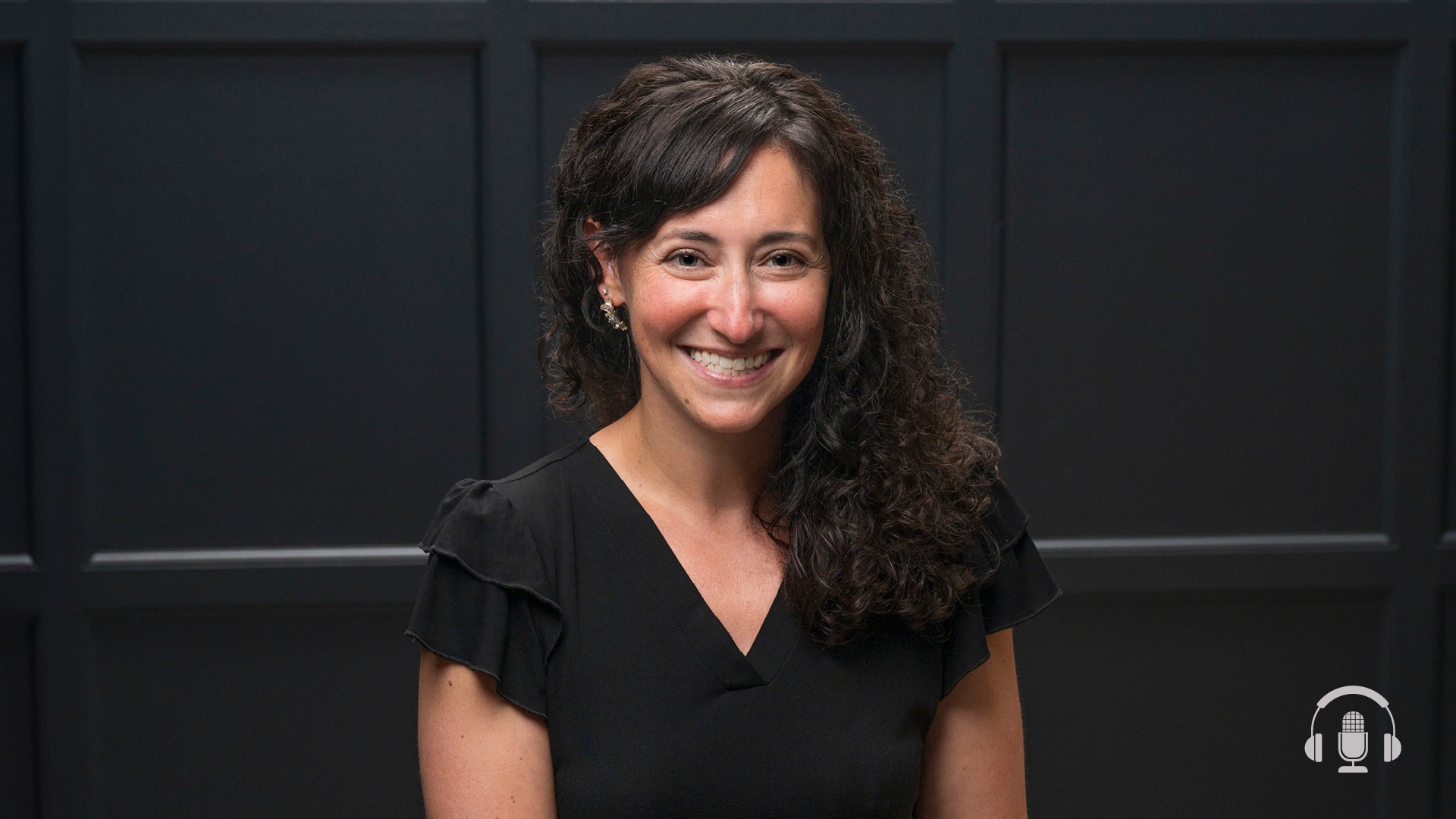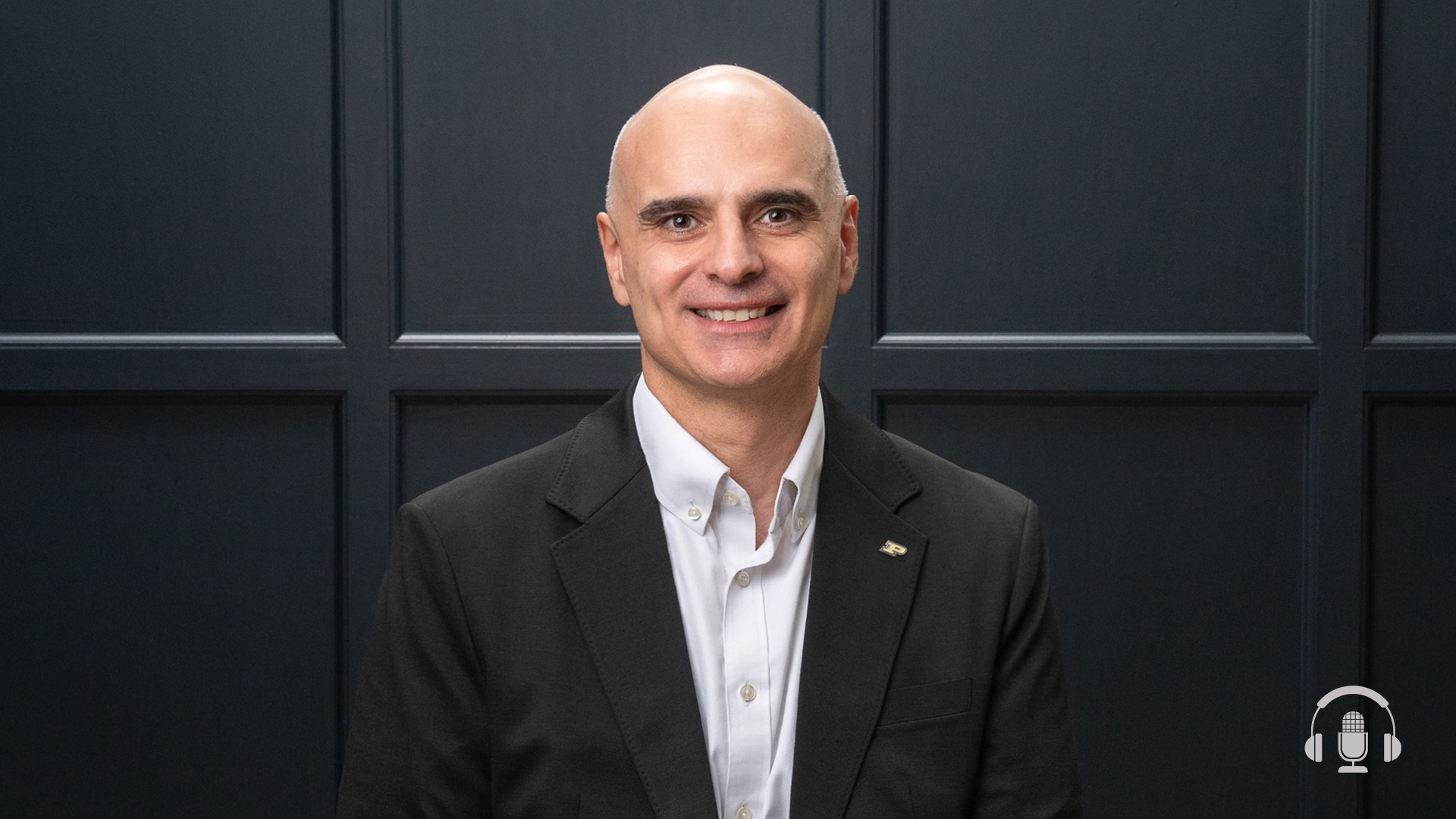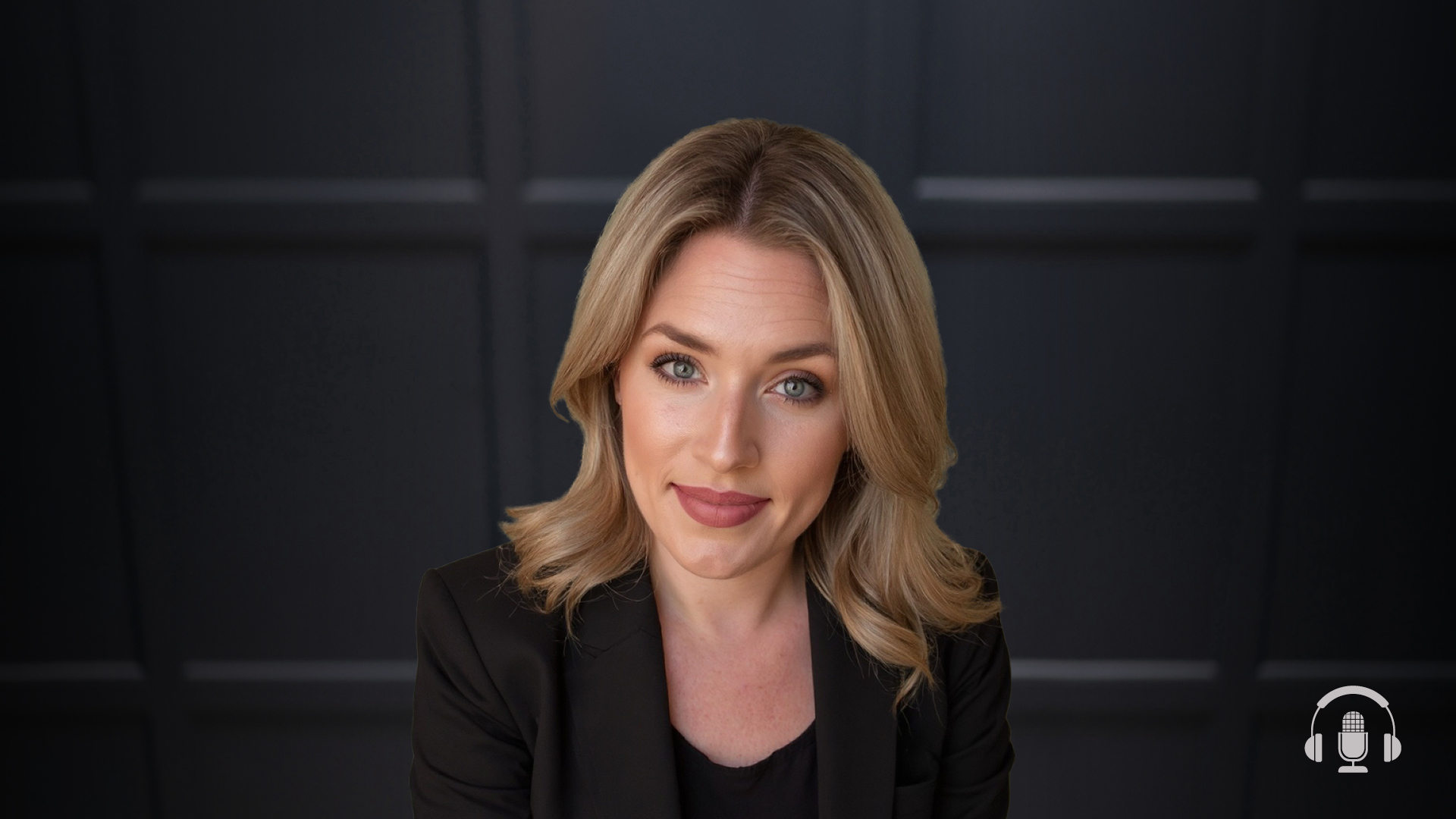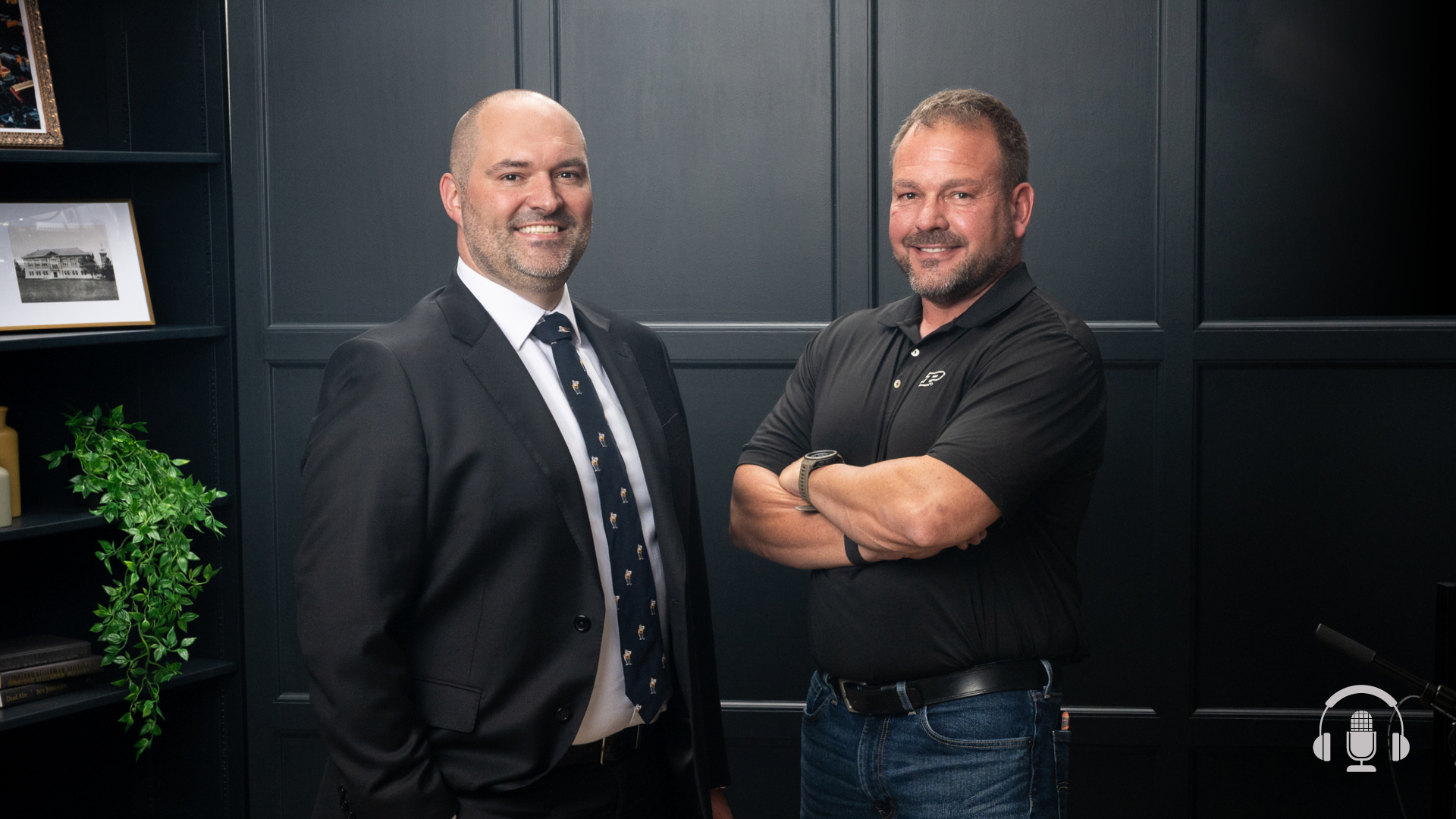Podcast Ep. 82: Purdue Institute for Cancer Research Raises $100,000 in Annual Challenge 5K
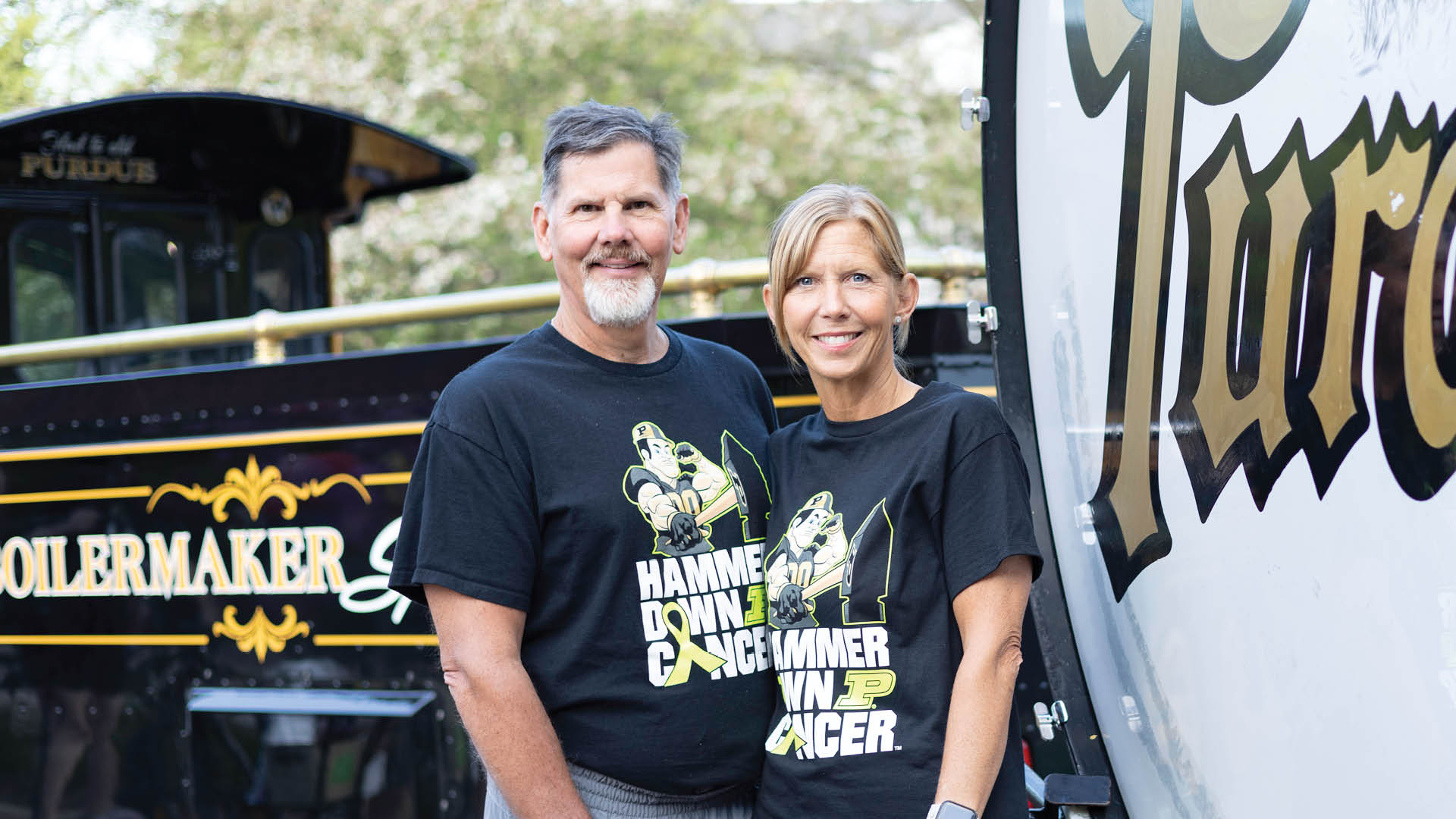
In this episode of “This Is Purdue,” the podcast team is taking our listeners behind the scenes during the Purdue Institute for Cancer Research’s 15th annual Challenge 5K run/walk.
More than 900 runners and walkers participated in this year’s Challenge, raising more than $100,000 for lifesaving cancer research.
As one of only seven National Cancer Institute-designated Basic Laboratory Cancer Centers in the U.S., the Institute for Cancer Research generated more than 150 patents during the past decade, and its members have over 40 drugs in various stages of development. More than 110 researchers across Purdue University share ideas, insights and findings to drive cancer research, with a shared goal of creating a world without cancer.
Listen as we talk to The Challenge’s 2023 guests of honor, Tony and Kelly Trent, parents of the late Tyler Trent, a 20-year-old Purdue student from Carmel, Indiana, who passed away from a rare form of bone cancer in 2019.
Tony and Kelly share more about what the word “persistence” means to their family – and what it meant to Tyler – and why the research the Purdue Institute for Cancer Research conducts is so important in providing hope to cancer patients and survivors.
- Learn more about the Purdue Institute for Cancer Research
- Learn more about the Tyler Trent Cancer Research Endowment
- Learn more about the Tyler Trent Courage and Resilience Award
- Read more about Eric Magallanes, the 2022 Tyler Trent Courage and Resilience Award Winner
Full Podcast Episode Transcript
Kate Young:
Hi, I’m Kate Young and you are listening to This is Purdue, the official podcast for Purdue University. As a Purdue alum and Indiana native, I know firsthand about the family of students and professors who are in it together, persistently pursuing and relentlessly rethinking. Who are the next game changers, difference makers, ceiling breakers, innovators, who are these Boilermakers? Join me as we feature students, faculty and alumni taking small steps toward their giant leaps and inspiring others to do the same.
Kelly Trent:
I think when you lose somebody, one of the biggest fears is that people are going to forget. I know I’ve experienced that as a mother and losing a child, and so the fact that people will join us or just that anybody would come out is just a way to remember our loved one and to keep them with us in a way. For me, that’s part of what it’s about. It’s just feeling like the community comes together and you just feel supported.
Kate Young:
In this episode of This is Purdue, our podcast team is taking you behind the scenes during the 15th annual Purdue Institute for Cancer Research Challenge 5K walk/run. More than 900 runners and walkers participated in this year’s challenge on April 15th, raising more than $100,000 for life-saving cancer research and the challenge has generated more than $1 million for Purdue Cancer Research since 2008.
This year’s challenge guests of honor were Tony and Kelly Trent, parents of the late Tyler Trent, a 20 year old Purdue student from Carmel, Indiana who passed away from a rare form of bone cancer. You’ll hear Tony and Kelly share more about what the word persistence means to their family and what it meant to Tyler and why the research the Purdue Institute for Cancer Research conducts is so important to providing hope to cancer patients and survivors. But before we fully launch into this episode, for those of you who weren’t at this year’s Challenge 5K, I want to set the stage. The sun was shining, the birds were chirping, and the excitement and buzz before the race kicked off was palpable. It was a beautiful spring day on Purdue University’s campus. I had the honor of [inaudible 00:02:17] this year’s event with my This is Purdue podcast crew.
Thank you so much for supporting the 15th Annual Challenge 5K. Does anyone here listen to podcasts?
Audience:
Woo!
This is Purdue.
Kate Young:
Yeah. This is Purdue, the official university podcast. I’m Kate Young, I’m the host of that podcast. We’re going to turn this all into a podcast episode, so be sure to tune in, you might be a part of it.
Before the race kicked off that morning, the crowd of runners, walkers and volunteers heard from our guests of honor, Tony and Kelly.
At this time I’m going to invite up a very special couple, Tony and Kelly Trent, parents of the late Tyler Trent.
Tony Trent:
Thank you everybody. Hey, I just… There’s something really to be excited about today. You guys raised over $100,000 for Cancer Research. Give yourselves a big hand.
I know that so many people’s lives are affected by cancer, either you’ve been affected personally or you’ve had a family member affected by cancer, or if you haven’t been affected by cancer yet, the odds of that happening are pretty high. So we are so grateful for the Purdue Institute for Cancer Research and the work that they’re doing and we’re so grateful for people like you that want to come out and make a difference in people’s lives. I know like today, you get the honor and the blessing, you may not realize this, but you get to walk and run and you get to do something for someone else that they can’t do for themselves. I know Tyler was confined to a wheelchair and was not able to even walk later in his life. So many people, as I mentioned, are affected by cancer and we need a cure. So it’s people like you that are making a big difference and once again, we just want to thank you guys for coming out today.
Kate Young:
After Tony’s heartfelt remarks, Adam Myers, a Group X instructor for Purdue Recreation and Wellness, led the participants in some stretches to get ready for the race and then the Heart and Soul ensemble from Purdue musical organizations sang the national anthem. And then it was go time. We kicked off the race with Purdue Pete leaving the way across the start line and Tony and Kelly doing a ceremonious bang on the Purdue All-American Marching Band’s big bass drum.
All right. Okay, the Trent’s, are you ready? All right, let’s give a countdown. Three. Two. One.
Once the 5K was underway, I got a chance to catch up with Brandt Patz the Chief Development Officer for the Purdue Institute for Cancer Research, formerly known as the Purdue Center for Cancer Research, the Institute changed its name in January, 2023 after nearly 45 years of groundbreaking, multidisciplinary cancer research. As one of only seven National Cancer Institute designated basic laboratory cancer centers in the US, the Purdue Institute for Cancer Research generated more than 150 patents during the past decade, and its members have over 40 drugs in various stages of development. Brandt shares more on the institute’s recent name change and how these Purdue researchers share ideas, insights, and findings to drive cancer research.
Brandt Patz:
We have changed our name from the Purdue Center for Cancer Research, so we kind of viewed it as promotion so Institute’s right above a center allows us for new opportunities to really take that next step and take the next leap there so really we’re excited about the future and where we’re headed in cancer research and yeah, we’ve been very fortunate. We have some of the greatest minds in the world here on campus and they’ve all come together. We have seven different colleges, over 20 different units on campus, all focused on one goal and that’s find a cure for cancer. So we’ve had some great breakthroughs recently. Phil Low is one of our rock stars, if you will, four FDA approvals just in about a year and a half so really testament to the work that goes on here in the life-changing and research that is happening.
So we’re excited about the future and I think the move to Institute allows us to really build infrastructure to really focus in on cancer areas that are very meaningful, such as the Tyler Trent, storing the legacy that he has in osteosarcoma. We’re doing some great research on that front, so this allows for opportunities to really support and get more funding in for those researchers who are working on that. We’re one of seven basic science centers that are NCI designated, which if you think of that’s kind the major leagues of cancer research. And so for Purdue being one of seven and basic research, what that means is basically the foundational level of research. So our research can be applied to different cancers that we have. So you look at some of these other cancer centers where they’re focused on maybe one area, we can do research that really can apply to a bunch of different cancers. So you think about kind of investment in cancer research, you get your biggest bang for your buck here because the impact really goes farther.
Kate Young:
And when it comes to special stories that are coming out of the Purdue Institute for Cancer Research, Brandt says there’s no shortage of those.
Brandt Patz:
We actually have a staff member that is on, she’s on staff here, but she’s been with the Cancer Institute for many years and she actually had pancreatic cancer, so just when that diagnosis came through, I know it really impacted the entire faculty and staff in the community here and luckily she was in the right spot and got connected with some of the clinicians and some of the partners with us and then now she is cancer free. And so that’s just one of the stories, but we’ve heard so many where it’s just learning about the cancer research here and getting connected with the right people has led to early detection and we all know if you catch it early, your life expectancy goes way up. It’s really been inspirational just to hear stories like that where it’s “I didn’t know about this” and “I learned this” and “That really saved my life.” And so we hear a lot of those stories.
Kate Young:
If you haven’t listened to our, This is Purdue episode or read our stories on Philip Low, Purdue University’s presidential scholar for drug discovery and the Ralph C. Corley distinguished professor of chemistry, you can head over to stories.purdue.edu. Dr. Low helped develop Cytalux, a fluorescent marker that allows cancer surgeons to quickly identify malignant cells and remove them during surgery. The Food and Drug Administration approved the drug in November, 2021 for ovarian cancer and in December, 2022, the FDA approved Cytalux to help doctors during lung cancer surgery as well. Dr. Low conducts his research as part of the Purdue Institute for Cancer Research and trust me, you don’t want to miss this incredible story highlighting Purdue research and innovation. Brandt tells us more about how the Purdue community can make a difference when it comes to the Institute’s cancer research.
Brandt Patz:
If you’re looking to make an impact with cancer research, because I know me personally, I look, with my philanthropy, where am I making the most impact? Where can I invest and really do something meaningful? I truly feel like the Purdue Institute for Cancer Research is a great investment because again, greatest minds in the world and we’re focused on finding a cure, beating cancer. I truly feel like we can do that here so if you’re looking for a great place to support cancer research, you’re at the right spot.
Kate Young:
Brandt ends with one of my favorite quotes from this episode.
Brandt Patz:
It’s really cool to see the Purdue community just come together and all for the same goal. We need to really make great breakthroughs. Cancer has affected so many of us. This is a great opportunity for us to really put our Boilermaker stamp on it. I mean, I often say if we can put a man on the moon, we can beat cancer. I truly feel that same sentiment with the Boilermaker community here.
Kate Young:
If Purdue can put a man on the moon, Purdue can beat cancer. To learn more or to donate, head over to purdue.edu/cancer-research. Our This is Purdue team also had the chance to chat with longtime challenge 5K participant and Boilermaker, Alan Karpick before he took off at the start line that morning.
Alan Karpick:
Right, I’m Alan Karpick, I’m with goldandblack.com, which we’re a sports website on the On3 network. I’ve been doing that since 1996. I’m a Purdue grad, grew up in West Lafayette, Indiana. I’ve lived here since 1966, so-
Kate Young:
Wow.
Alan Karpick:
… this is a big part of my community. I’ve lived other places a couple of times, but West Lafayette and Purdue has been my home.
Kate Young:
Alan has been involved with this event since it started in 2008. I asked him how he got involved and why he’s been participating every single year for the past 15 years.
Alan Karpick:
Right, I really was involved at the very start because George and Pam Faber, who’s a… Pam being a cancer survivor, said, “We need to start this race.” Back in 2008, we got it together. Danny Hope is the head football coach. We kind of tied it in with football at that time.
Kate Young:
Okay.
Alan Karpick:
And started that in 2009 and been doing it ever since and it’s been a great event and we’re very, very privileged to be part of it.
Kate Young:
Why does this cause matter to you?
Alan Karpick:
Well, I think it matters to everybody. Cancer unfortunately affects everybody. Obviously my wife is a cancer survivor and it went through that 2009, so that makes it extra important, but we just know everybody. I have a colleague, Brian [inaudible 00:11:54] that I work with that is going through that as well, so it touches everybody and it’s really a great community event and it’s a great Purdue event, but it’s a great community event, very passionate about that because you bring that to the table because it’s touched, cancer’s touched everybody.
Kate Young:
This year, Alan won the Challenge 5K fundraising award for individuals. He beat his previous record and raised $13,000 all on his own. Here’s Alan again, who, by the way, mentioned to us he ran in the Challenge 5K in the sleet and cold in years past and was extremely excited about this beautiful mid 60s spring weather we had that day.
Alan Karpick:
Well, I’m lucky that I have, I’ve been doing it for a long time, so kind of a network of people that have given money over the years and goldandblack and our readers and many of them have been very, very supportive. It’s quite humbling the support that we’ve had over the years, but again, it gets back to the whole notion that everybody, cancer touches everybody, everybody has a level of concern and/or passion for it, and that’s made a big difference over the years, but it’s been a great part of what I’ve been able to do.
Kate Young:
As Alan mentioned, he’s been living in this special Boilermaker community for nearly 60 years now, so what does that produce spirit we all felt so strongly that day mean to him?
Alan Karpick:
There’s nothing like the Purdue community. I mean you see it in athletics, but this university’s got a great kind of a team feel to it. It has for years. I think this is the type of event you want to bring together where you share that feeling. Yes, we’re running for a cause, but the university, the community, that’s the thing that’s special about this here.
Kate Young:
There’s nothing like the Purdue community. Congrats again to Alan for raising $13,000 for lifesaving cancer research. Finally, our This is Purdue podcast team had the great honor of interviewing Tony and Kelly Trent. Their son Tyler attended Purdue and was a cancer activist who sadly passed away due to a rare form of bone cancer on January 1st, 2019 at 20 years old. He drew national attention with his college game day piece on ESPN, and many remember when he predicted Purdue would beat number two ranked Ohio State, and they did, 49 to 20. While he was a student at Purdue, Tyler volunteered with the Purdue Dance Marathon and served on the leadership team, which raises money for Riley and the Purdue Institute for Cancer Research. Tyler was the first student to ever sit on the board. Kelly and Tony share more about this year’s Challenge 5K.
Kelly Trent:
It’s so encouraging to see everyone come out and even just the idea that they’re coming out likely for a loved one or to be part of the solution to raise money for cancer research and just to know that Tyler was very aware of his time and his money and where he wanted to put that. And the fact that people would take the time and give the money to be a part of this is super encouraging and it’s just really neat.
Tony Trent:
It’s really exciting to see the different colors of T-shirts.
Kelly Trent:
Yes.
Tony Trent:
Today, one is for volunteers and to see so many people out here wanting to volunteer for this day and the others are for runners and the other is for survivors and it’s so good to see the survivors here as well and just the atmosphere and as we mentioned, the weather, it’s just incredible to be here. I think so many lives are impacted by cancer. I mean, if you haven’t been impacted personally, the odds of it impacting you sometime in the future are really high.
Kate Young:
Right.
Tony Trent:
And so this institute is so important as well as many other institutes are doing such great work. It’s going to take us all to find a cure and specifically for childhood cancer today, 50 kids will get diagnosed as cancer. Every single day, 50 kids get diagnosed with cancer, and so they’re 25% of our population, but a 100% of our future and so that’s why it’s so important for us, personally, to think that not only did we lose our son to cancer, but we also lost our future daughter-in-law, our future grandchildren, a future whatever our kids provide and it’s so important for us and our family to support this Institute and to support all cancer research facilities because we’re all affected some way.
Kate Young:
Kelly shares what the support from both their family members and the Purdue family means to her.
Kelly Trent:
For us, I think when you lose somebody, one of the biggest fears is that people are going to forget and I know I’ve experienced that as a mother losing a child. And so the fact that people will join us or just that anybody would come out is just a way to remember our loved one and to keep them with us in a way. And so for me, that’s part of what it’s about, it’s just feeling like the community comes together and you just feel supported.
Kate Young:
Tyler was a passionate Purdue sports fan, especially Purdue football, and he served as the honorary captain in both the 2017 and 2018 Hammer Down Cancer Games. He was also the honorary captain for the Music City Bowl game in December, 2018. Tyler was also passionate about helping others. He used his social media platforms to inspire people and raised more than $1 million for cancer research. Tony and Kelly describe him as genuine, faith-filled, driven and compassionate. I asked the Trents how they would describe Tyler’s legacy at Purdue.
Tony Trent:
Oh gosh, it’s overwhelming, I mean, and we’re standing really next to the Neil Armstrong Building and just the significance of Neil Armstrong and what he did for Purdue and then to think that my son has a gate here.
Kate Young:
Yes.
Tony Trent:
You know? It’s just humbling and people would ask him that question. I remember being in the suite at the game and I said, “Tyler, this is for you. Today is for you.” And he would see the signs and they would all say “Tyler’s strong”, and he would just shake his head in disbelief and so I would think that he would do the same today. He would just shake his head in disbelief and would have a hard time understanding what his life has meant to so many people, meant to Purdue, meant for cancer research. It’s just overwhelming and it’s so humbling.
Kate Young:
And speaking of football, Tony and Kelly’s son, Ethan Trent announced in December, 2022 that he committed to Purdue’s football team. Ethan was a starting offensive lineman at Carmel High School and will attend Purdue this fall.
I know Tyler loved football. What are you looking forward to for this upcoming football season and also you have a son playing on the team. How amazing is that?
Tony Trent:
Oh my gosh, it’s so exciting. Just being a graduate of Purdue myself and just seeing Tyler’s legacy and hopefully Ethan’s legacy will happen. We’re so excited. We’re so excited for the coaching staff.
Kelly Trent:
Yeah.
Tony Trent:
We absolutely love the coaching staff. We have high hopes for them. They are going to transform this program in a new way that I believe personally, has never been there before. There’s a new younger energy there that I think can really connect to the age of group, of the players in a new way, this never happened. We’ve met all the staff, we absolutely love them, and we’re excited to see what happens for Ethan and Purdue football.
Kate Young:
When you’re sitting in [inaudible 00:18:57] and when you’re here today, what does that Boilermaker spirit mean to you? Can you put it into words?
Tony Trent:
That’s hard. I mean, I think about how Tyler wanted to define what it means to be a Boilermaker, and I think that definition of for us and our family is that one of the biggest things is persistence and really to play sports at a collegiate level, it requires a lot of persistence and so that’s what the hopes are is that we go in and just seeing, hopefully see our son run out on the field at some point in his college career, it will, it’ll bring a lot of tears to my eyes for sure.
Kate Young:
Absolutely. Kelly chimes in on Tyler and his Boilermaker persistence.
Kelly Trent:
I think of Tyler, literally, I feel like he embodied the word persistence.
Kate Young:
Yes.
Kelly Trent:
And just that never give up mentality and just that in the face we’re the only way that we have to exercise that is really when we’re in the face of adversity or going after something we want and he did that well and he was not going to allow that to keep him down, and he was going to live while he could.
Kate Young:
In Tyler’s honor, Purdue donors established the Tyler Trent Courage and Resilience Award. This scholarship is awarded each year to undergraduate students at Purdue’s West Lafayette campus who have encountered serious physical or daunting adversity in their pursuit of higher education. To learn more about this award and the Tyler Trent Cancer Research endowment, head over to purdue.edu. The Trents share a quote, “It is said a Boilermaker will fight until there is no fight.” While that’s not quite true, Tyler’s fight is over, but he will remain a Boilermaker forever. Here’s Tony.
Tony Trent:
Thanks for Purdue University for everything that they’ve done to our family. I recall the day that I brought my son on campus, and at the point he was on one crutch and I was wondering how he was going to be able to attend college, do chemotherapy and get to class. The story I often like to tell is we went to get a parking pass for him, and they basically told us, “Look, we will do anything for you. We will change the room, classroom location. If there’s not a parking spot for his car, we will make one for him.” And I think it embodies the Boilermaker spirit going back to that again, that this university cares about its students and it does things beyond and above other universities. And I think that’s why you can say that I believe over 60,000 people applied to Purdue this year. People see it. It’s a different university and it makes a difference. We are grateful for everything the university has done for our family. We couldn’t thank them enough. So thank you, Kate for having us on.
Kate Young:
I had the joy of meeting the Trent’s in Naples during President’s Council Weekend, and I was so happy to see them again at the Challenge 5K. We can’t thank them enough for joining us and sharing their story on This is Purdue. If you want to watch our full video interview with the Trents, plus get an inside look at the Challenge 5K on that beautiful spring day in April, head over to our podcast YouTube page, youtube.com/@thisispurdue. And remember, follow us on your favorite podcast platform to never miss an episode. This is Purdue is hosted and written by me, Kate Young.
At this special podcast shoot during the Purdue Institute for Cancer Research Challenge 5k, our lead videographers were Ted Shellenberger and Allie Chaney. Photography was done by Jerry Verbinos and Braden Williams. Our social media marketing is led by Ashley Schreyer. Our podcast design is led by Caitlin Freeville. Our podcast team project manager is Emily Jessalaytus. Our podcast YouTube promotion is managed by Megan Hoskins and Kirsten Borst and our podcast research is led by our This is Purdue intern, Sophie Ritz.
Thanks for listening to This is Purdue. For more information on this episode, visit our website at purdue.edu/podcast. There you can head over to your favorite podcast app to subscribe and leave us a review and as always, boiler up.
